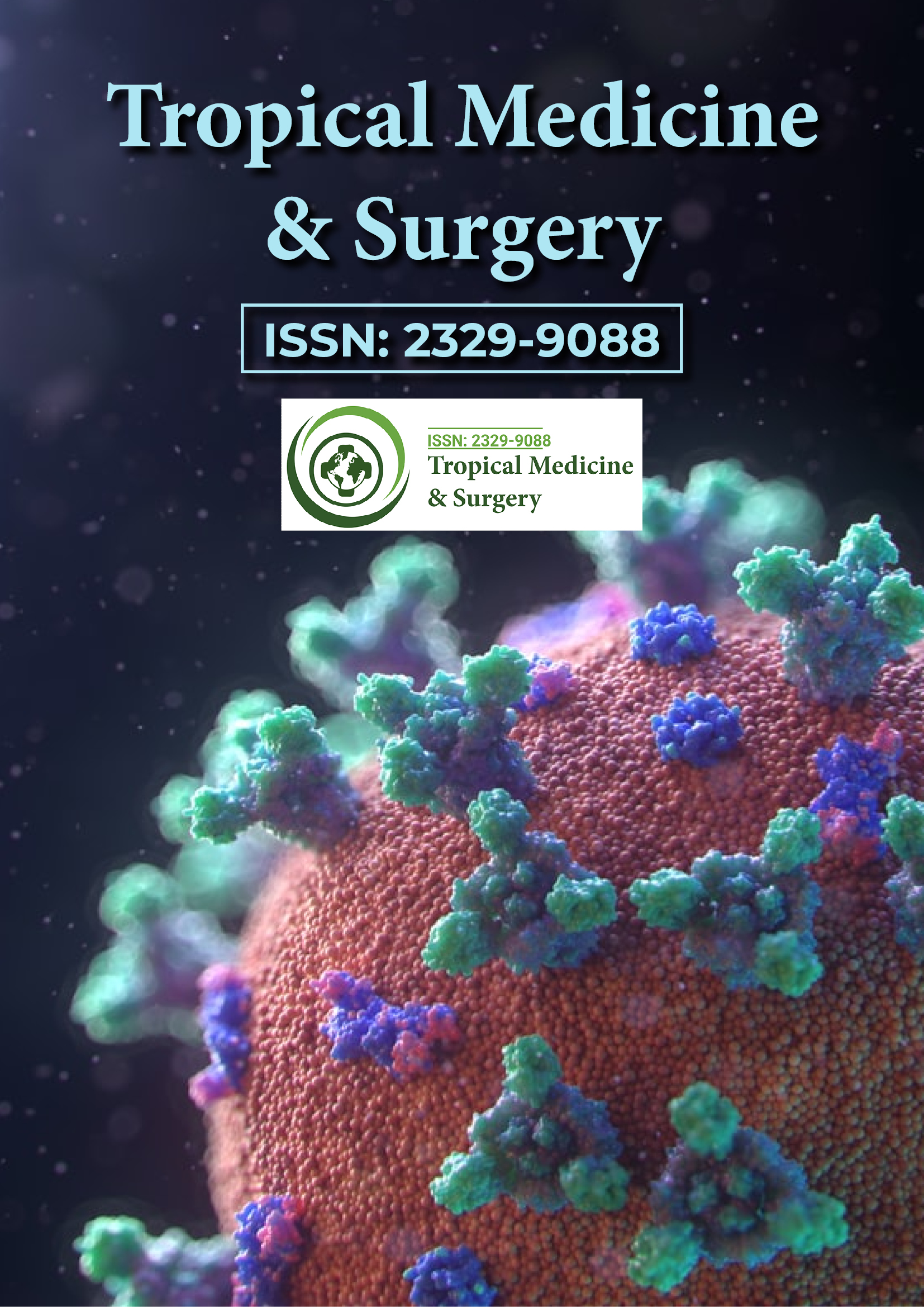Indexed In
- Open J Gate
- Academic Keys
- RefSeek
- Hamdard University
- EBSCO A-Z
- OCLC- WorldCat
- Publons
- Euro Pub
- Google Scholar
Useful Links
Share This Page
Journal Flyer

Open Access Journals
- Agri and Aquaculture
- Biochemistry
- Bioinformatics & Systems Biology
- Business & Management
- Chemistry
- Clinical Sciences
- Engineering
- Food & Nutrition
- General Science
- Genetics & Molecular Biology
- Immunology & Microbiology
- Medical Sciences
- Neuroscience & Psychology
- Nursing & Health Care
- Pharmaceutical Sciences
Editorial - (2021) Volume 9, Issue 5
A Note on Tropical Medication: An Editorial
Sydney Lane*Received: 07-Dec-2021 Published: 28-Dec-2021
Description
Tropical medication is an interdisciplinary part of medication that arrangements with medical problems that happen extraordinarily, are more inescapable, or are harder to control in tropical and subtropical regions. Doctors in this field analyze and treat an assortment of sicknesses and illnesses. Most diseases they manage are endemic to the tropics. A couple of the most notable incorporate intestinal sickness, HIV/AIDS, and tuberculosis. They should be proficient in the 18 lesser known dismissed tropical sicknesses, which incorporate Chagas infection, rabies, and dengue. Helpless day to day environments in immature tropical nations have prompted a rising number of non-transferable illnesses. These disorders cause malignant growth and cardiovascular infection, which, previously, have been all the more a concern in created nations. Doctors prepared in tropical medication should likewise be ready to analyze and treat these diseases. Preparing for doctors wishing to spend significant time in tropical medication fluctuates broadly over the various nations. They should concentrate on the study of disease transmission, virology, parasitology, and insights, just as the preparation expected of a standard MD. Research on tropical sicknesses and how to treat them comes from both field exploration and examination focuses, including those of the military.
Sir Patrick Manson is honored as the father of tropical medicine. He established the London School of Hygiene and Tropical Medicine in 1899. He's credited with chancing the vector by which elephantiasis was being passed to people. He learned it was a bitty nematode worm called filarial sanguineous hominies. He kept on concentrating on this worm and its life not really set in gravestone the worms went through metamorphosis inside womanish culex fatigues mosquitoes. Consequently he plant mosquitoes as a vector for elephantiasis. Later this disclosure he worked together with Ronald Ross to check the transmission of malaria by means of mosquito vector. His work with finding vectors as styles of transmission was introductory in the establishing of tropical drug and our eclipse and inflow appreciation of multitudinous tropical conditions.
Training in tropical medicine varies greatly between nations. Most physicians are trained in tropical medicine institutes or as part of infectious disease training programs. Sir Patrick Manson created the London School of Hygiene and Tropical Medicine. If a physician wishes to specialize in tropical medicine in the United Kingdom, they must first train in general internal medicine and be admitted to the Royal College of Physicians. To obtain a Diploma of Tropical Medicine and Hygiene, they must study the specialty of infectious illnesses while also completing a full-time course load. Their studies take place in the London or Liverpool schools of tropical medicine. They must also spend two years at one of the UK's accredited tropical medical institutions (located in London, Liverpool, or Birmingham). Physicians in the United Kingdom who want to be qualified in tropical medicine must spend at least a year abroad in an internship.
The World Health Organization (WHO) has recognized 18 tropical diseases as Neglected Tropical Diseases (NTDs), which impact over a billion people globally, primarily in poor nations. These illnesses are heterogeneous, which means that they originate outside of the organism affected by the sickness. Parasites, viruses, and bacteria are responsible for NTDs. NTDs are often overlooked since they are not lethal on their own but are debilitating. People who have these diseases are more vulnerable to additional NTDs and deadly diseases such as HIV or malaria.
The impact of neglected tropical illnesses can be evaluated in Disability-Adjusted Life Years (DALY). Each DALY represents one year of healthy life lost due to death or disability. It was predicted that 26.6 million DALYs were lost in 2010. Furthermore, it is predicted that NTDs cause a loss of 15%-30% output in countries where NTDs are endemic. According to the CDC, 100 percent of nations are classified as 'low income' was affected by 5 different NTDs at once.
Citation: Lane S (2021) A Note on Tropical Medication. Trop Med Surg. . 9: e109
Copyright: © 2021 Lane S. This is an open-access article distributed under the terms of the Creative Commons Attribution License, which permits unrestricted use, distribution, and reproduction in any medium, provided the original author and source are credited.
